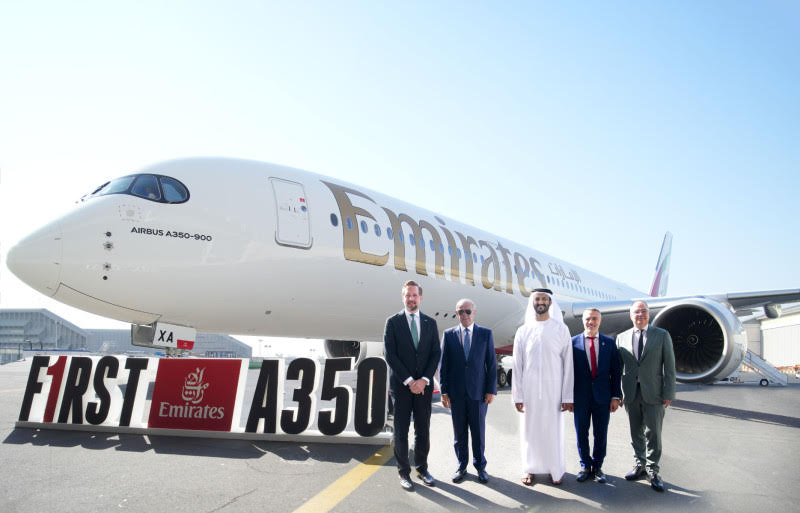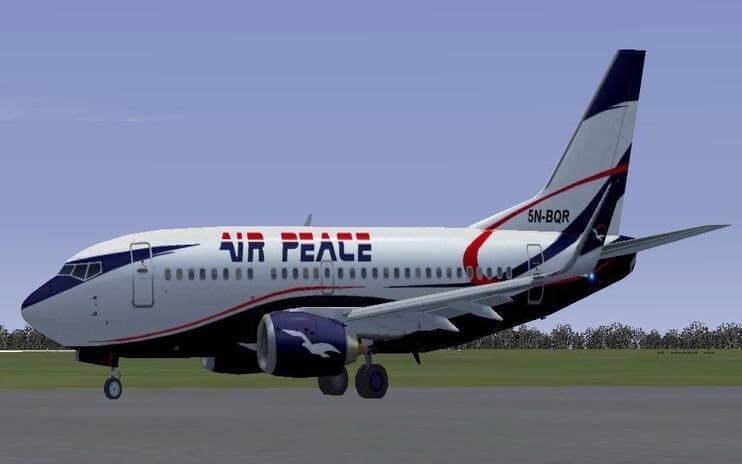Travel/Tourism
Pan-African Passport: African Travel Spend To Rise By 24%


By Dipo Olowookere
New research released by global travel technology provider, Sabre Corporation, has revealed that African air travel spend is expected to rise 24 percent with the introduction of the pan-African passport in 2018. The new passport will enable African travellers to visit other countries on the continent without a visa.
The comprehensive survey by Sabre aimed to uncover the opportunities and challenges faced by travellers in Africa today, to help airlines’ growth and provide African travellers an overall better journey.
Travellers from four countries – South Africa, Nigeria, Kenya and Egypt were surveyed, with those having flown in the past 24 months saying they would spend 24 percent more with the introduction of the passport (from $1,100 to $1,500 annually).
But despite a willingness among travellers to spend more on flights, travel in Africa still remains inaccessible to the majority, with only 23 percent of those surveyed having travelled abroad at all in the last two years. When asked what prevents them from travelling more, the top reasons were:
32% said travel is too expensive
31% said it is difficult obtaining VISAs
30% said it is too difficult to book travel
28% said there are no flights to their chosen destination
Travellers also expressed a number of gripes about their current experiences when travelling:
27% said the check-in process takes too long
22% said the check-in procedure is confusing
20% don’t like the food on aircrafts
19% think there is not enough to do at the airport
“The results suggest that while travel is inaccessible to many and is difficult for those who do travel, there is a still a strong desire to travel more,” said Dino Gelmetti, vice president, Europe, Middle East and Africa, Airline Solutions, Sabre. “Additionally, most of the pain points can be addressed by airlines, and these tweaks could make all the difference to travellers. African carriers currently face tough competition from international rivals that control 88 percent of African airspace but, as demand for travel increases, African airlines have a real opportunity to win the lion’s share of bookings by addressing the pain points of travellers and going the extra mile to improve their experience.”
Like many other travellers globally, Africans also expressed a strong interest in experiencing a travel journey that was more personalised and appealing to their taste. Respondents said that they would be willing to spend up to $104 per trip on an airline’s extra products and services – such as excess baggage, cabin class upgrades, and special food and beverage – if it improved and personalised their journey.
“Airlines, globally, currently pocket an average of just $16 per passenger on ancillaries, so the fact that African travellers are prepared to spend six times more than that represents a significant retail opportunity for carriers on the continent,” said Gelmetti. “Airlines will flourish if they invest in technology that can make sense of customer data and use it to offer passengers the right product in the right context at the right time. This technology, which empowers airlines to mirror the personalised shopping tactics already mastered by the online retail industry has been proven to increase ancillary revenue by an average of 10 percent, and is being used by some of the world’s most forward-thinking carriers.”
As further encouragement for African carriers, Sabre’s survey respondents stated a number of reasons why people would choose to fly with their local carrier over a foreign airline; the top three reasons were:
It offers cheaper tickets
It offers the latest technology on board
It offers greater comfort on board.
Travel/Tourism
Musawa, Governor Mba Commission Enugu Christmas Village

By Dipo Olowookere
The Enugu Christmas Village has been commissioned by the Minister of Arts, Tourism, Culture, and the Creative Economy, Ms Hanatu Musawa; and the Governor of Enugu State, Mr Peter Mba.
This development officially kicked off the holiday season in the state, giving residents and others from across Nigeria and outside the opportunity to relax in an atmosphere of love, positioning Enugu as a key destination for cultural and holiday tourism.
Facilitated by Omu Resort, a leading tourism promoter in Africa, the Enugu Christmas Village is set to become the heartbeat of holiday celebrations in the state.
The company has already organised a 25-day festival at the village designed to attract residents, visitors, and dignitaries from across the region.
With its vibrant atmosphere and festive attractions, the Enugu Christmas Village boasts an array of attractions such as a waterpark, roller skating, archery, amusement rides, and much more.
At its centre is a breathtaking display of 500,000 Christmas lights, illuminating the village in a magical glow that promises to captivate visitors of all ages.
The festival goes beyond the lights and rides, offering a rich tapestry of events that celebrate the state’s cultural heritage.
Highlights include Afrobeat Concert, Praise Night, Highlife Concert Street Carnival, Cultural Parade and a Grand Fireworks Show.
One of the most anticipated moments is the Santa Street Storm, where over 100 Santa Claus figures riding tricycles will parade through the streets, distributing gifts to orphanages and the less privileged, spreading joy and goodwill.
Running from December 7 to December 31, 2024, the Enugu Christmas Festival is more than just a celebration of the holiday season. It underscores the state’s cultural vibrancy and its potential as a leading tourist destination.
The festival offers a unique opportunity for families and friends to come together, celebrate, and unwind in a festive atmosphere. It is also expected to fosters unity and showcases the rich cultural heritage of Enugu State, while promoting arts, tourism, and community well-being.
Travel/Tourism
Emirates Unveils Airbus A350-900 in Dubai

By Aduragbemi Omiyale
One of the leading airline operators, Emirates Airline, has officially unveiled its first Airbus A350-900 at an exclusive event showcase in Dubai attended by aerospace partners, government officials and dignitaries, members of the media, as well as aviation enthusiasts.
The Emirates A350 features three spacious cabin classes, accommodating 312 passengers in 32 next-generation Business Class lie-flat seats, 21 Premium Economy seats and 259 generously pitched Economy Class seats.
The latest onboard products reflect the airline’s commitment to delivering a premium passenger experience while optimising operational efficiency. The Emirates A350 is the first new aircraft type to join Emirates’ fleet since 2008.
Apart from its newly delivered A350, Emirates operates two other aircraft types around the world to 140 destinations – the widebody Boeing 777 aircraft and the iconic ‘double decker’ Airbus A380 aircraft.
The A350’s introduction will enable Emirates to expand into new destinations globally, including mid-sized airports unsuited for larger aircraft. The Emirates A350 will be delivered in two versions – one for regional routes and one for ultra long-haul routes.
The Emirates A350 takes technology to another level. Customers can now adjust their electric window blinds at the touch of a button.
The aerBlade dual blind system will feature in Business and Premium Economy Class offering two shaded options, and the aerBlade single blind systems will make a debut in Economy Class, with all blinds showing the Emirates Ghaf tree motif when closed.
Business Class on the Emirates A350 will feature 32 luxurious leather ‘S Lounge seats’, inspired by the Mercedes S Class for an exceptional travel experience. The A350 aircraft will feature brand new additions of wireless charging on the side cocktail table in Business Class, and in-seat lighting controls with 5 streams of light. The 1-2-1 seat configuration in the A350 Business Class ensures a very private, exclusive experience.
Speaking at the event, the chairman of Emirates Airline, Mr Ahmed bin Saeed Al Maktoum, said, “Today is an exciting milestone for Emirates as we showcase our first A350 and usher in a new era for our fleet and network growth.
“This aircraft sets the stage for Emirates to spread its wings farther by offering added range, efficiency and flexibility to our network, enabling us to meet customer demand in new markets and unlock new opportunities in the cities that we serve.
“Onboard, our updated interiors and seating configurations will help us deliver a more elevated and comfortable experience to travellers across every cabin class.
“The 65 Emirates A350s joining our fleet in the coming years fit into the airline’s broader plans to support our visionary leadership’s Dubai’s D33 Strategy, which will transform the city into a pivotal hub in the global economy by expanding its connectivity and reach.”
Travel/Tourism
Air Peace Employees Undergo Training at Boeing Global Learning Institute

By Aduragbemi Omiyale
Some employees of Air Peace have upgraded their aviation safety skills at a training course organised by Boeing through the Boeing Global Learning Institute (BGLI) in collaboration with Cranfield University, United Kingdom as part of a shared commitment to shaping the future of aviation leadership.
Over the years, Air Peace has recognized that a deep, unwavering commitment to safety is key to its continued success.
The programme is aimed at building upon that vision, enabling executives to lead with confidence, manage risks effectively, and create high-performing teams that prioritize safety at every level.
In the five-day in-person training, all the executives and others in the various departments of Air Peace were taught advanced safety leadership skills and gained practical tools to implement the new knowledge.
The Head of Aerospace at Cranfield University, Prof Graham Braithwaite, said, “This collaboration ensured that the training directly addresses the challenges Air Peace faces, culminating in real-world capstone projects that would have a lasting impact.”
Reinforcing this position, the Lecturer for Organisational Resilience and Change at Cranfield School of Management, Fabian Steinmann, who was excited at the great progress Air Peace made over the years, said that they are happy to learn and share knowledge and find ways to strengthen the system, making it robust and flexible to adapt to the ever-changing environment.
“Safety is at the heart of everything we do at Cranfield so the privilege we have is that we travelled around the world, picked up the good practices, learned more about the culture and the operation in various countries so we’re here to facilitate that exchange with Nigeria and Air Peace to see how we share some of the good practices and lessons learned from all around the world and translate them into their operation.”
Also, the Senior Organisational Consultant and Programme Manager at Boeing Global Learning Institute, Harry Magui, said, “The Boeing company has long recognised the importance of supporting continuous learning of our aviation partners.
“To that end, the Boeing Global Learning Institute designs and delivers numerous learning programmes to both emerging and established leaders of our partners.
“These efforts aim to develop leadership, business, and technical skills so that our partners can improve their business processes, increase operational efficiency and enable leaders to strengthen their teams to ultimately grow their business.’
Alluding to the great work Air Peace has done in making safety a pre-condition rather than just a priority, Magui said, “We’re here to partner with our great partner, Air Peace who have been phenomenal in advancing the Aviation Industry in Nigeria, so we are here to support them to harness more opportunities in the future with the Advanced Leadership in Safety Excellence Training for all its top leadership within the organization.”
The Safety Manager at Air Peace, Captain Godfrey Ogbogu, said, “This class is quite essential and we’re lucky to have our resource persons impact knowledge on us. It is a well-structured training, especially for Air Peace because of where we are now and where we hope to go in the future.
“The whole essence of this class is to reinforce what we know before and be exposed to other avenues of learning. The aviation industry is ever-changing and dynamic, and Air Peace has to be abreast of such developments.”
-

 Feature/OPED5 years ago
Feature/OPED5 years agoDavos was Different this year
-
Travel/Tourism8 years ago
Lagos Seals Western Lodge Hotel In Ikorodu
-

 Showbiz2 years ago
Showbiz2 years agoEstranged Lover Releases Videos of Empress Njamah Bathing
-

 Banking6 years ago
Banking6 years agoSort Codes of GTBank Branches in Nigeria
-

 Economy2 years ago
Economy2 years agoSubsidy Removal: CNG at N130 Per Litre Cheaper Than Petrol—IPMAN
-

 Banking2 years ago
Banking2 years agoFirst Bank Announces Planned Downtime
-

 Sports2 years ago
Sports2 years agoHighest Paid Nigerian Footballer – How Much Do Nigerian Footballers Earn
-

 Technology4 years ago
Technology4 years agoHow To Link Your MTN, Airtel, Glo, 9mobile Lines to NIN
















